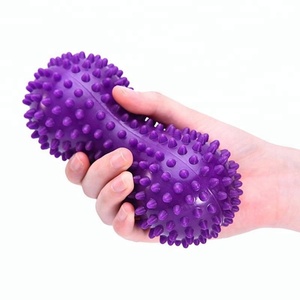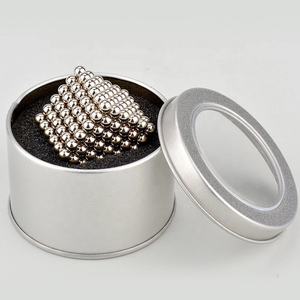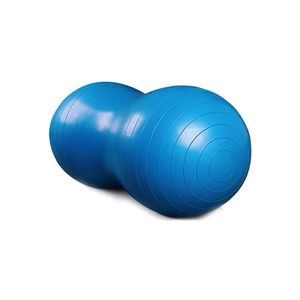(242 products available)



















 Ready to Ship
Ready to Ship































































































































































































Peanut-shaped exercise balls are also known as peanut exercise balls or peanut balls. They are popular for various exercises and therapeutic applications. Here are the main types of peanut-shaped exercise balls:
Peanut Stability Ball
This is the most common type of peanut-shaped ball. It is delineated from high-quality PVC material. It is used for stability and balance exercises. Usually, the ball is elongated in the middle, which makes it easier to roll. This provides stability when doing different exercises, such as core workouts or rehabilitation exercises. Moreover, it can also be used to improve proprioception and strengthen muscles that support the spine.
Peanut Exercise Ball with Handles
The peanut-shaped ball comes with handles that offer a firm grip during exercises. It is useful in preventing slippage. Also, it provides control when performing dynamic movements. Usually, the handles are made of durable plastic or rubber. This enhances the lifespan of the balls. They are also common in full-body workouts, including push-ups, rolls, and various strength training exercises.
Peanut Massage Ball
The balls are popularly known for therapeutic purposes. They come with textured surfaces or are filled with spikes. This helps in delivering deep tissue massages and myofascial release. The massage balls are usually used to target specific muscle groups, relieve muscle tension, and enhance blood circulation. They are also used by athletes for recovery purposes. Additionally, they can be used to reduce soreness and stiffness after intense workouts.
Peanut Yoga Ball
This type of peanut-shaped ball is widely used in yoga practices. It is used to improve flexibility, support various poses, and provide an extra challenge to yoga workouts. The yoga balls are used as support tools for people with flexibility issues. This helps them to achieve and maintain correct postures when doing yoga exercises. Moreover, the balls are used for stability, balance, and core strength training.
Inflatable Peanut Exercise Ball
The balls are lightweight and portable. They are easy to inflate and deflate. This makes them convenient for people who travel or prefer to work out at home. Like other types of peanut balls, they can be used for stability exercises, core training, and rehabilitation workouts. Also, they can be used to add an element of instability to traditional exercises, which enhances muscle engagement.
The peanut-shaped exercise ball is a versatile fitness tool that can be used in various exercise and therapeutic applications. Here are some common usage scenarios:
Physical Therapy
The peanut-shaped ball is widely utilized for rehabilitation exercises by physical therapists. Its unique form provides targeted pressure and support, which is very useful for patients recovering from spinal disorders, muscle injuries, or joint problems. The peanut exercise ball is effective in strengthening the muscles that support the spine and improve stability by encouraging active and passive stretching and lowering tension in the muscles around the spine.
Chiropractic Care
Chiropractors can use this ball to provide spinal decompression and alignment aid. The ball's shape fits perfectly between the shoulder blades or along the spine, allowing for precise pressure application. This relieves tension and stiffness in the back muscles, improving circulation and comfort. Spinal adjustments can be enhanced with the peanut ball because it provides stability and support.
Massage and Myofascial Release
The peanut ball is used for targeted muscle tension relief and deep tissue massage. Tight muscles in the neck, shoulders, and back can be treated by applying direct pressure to trigger points and sore spots. The shape of the ball allows it to fit in the curves of the body, providing a comfortable and effective massage. The ball also helps to loosen tight muscles, which improves flexibility and lowers muscle discomfort.
Core Strengthening
In core workouts, a peanut ball can be used to improve balance and stability, posing a challenge to the core muscles. When performing exercises like planks or knee raises, the ball can be placed under the lower back or feet to engage the muscles of the abdomen and back. This increases proprioception and encourages the muscles to work harder.
Balance and Stability Training
A peanut ball can be utilized for balance and stability exercises. It can be used to replace conventional weights, thus making exercises like squats, lunges, and push-ups more challenging. The instability of the ball forces additional muscles to work, thus improving balance and coordination.
Recreational Use
The peanut-shaped exercise ball can also be used for fun and enjoyable activities. It can be rolled back and forth between two people for simple exercises or games. This encourages social interaction and makes exercising enjoyable. Besides, the peanut ball can be used for sitting and lounging as it provides comfort and support.
When shopping for peanut-shaped exercise balls, there are several aspects business owners should consider to ensure they stock products that customers will find useful. Here are some of them:
Material
Buyers should get balls made of durable and safe materials such as PVC or rubber. They should also ensure the material can withstand frequent use and is free of harmful chemicals.
Size and Firmness
The firmness and size of the ball will affect how well it performs the intended function. Therefore, business owners should get balls in various sizes and firmness levels to cater to different individuals' needs and preferences.
Textured Surface
To improve grip and prevent slipping, buyers should look for peanut balls with textured surfaces. A good grip is particularly useful during intense workouts or when performing dynamic movements.
Versatility
Business owners should get peanut-shaped exercise balls suitable for various exercise forms, such as stability training, stretching, or massage. Such versatile products will appeal to a wider customer base.
Weight Capacity
Buyers should ensure the peanut-shaped exercise is capable of supporting the user's weight. To be safe, they should get balls with a higher weight capacity than they expect the users' weights to be.
Ease of Inflation and Deflation
Exercise balls require frequent inflation and deflation. Therefore, buyers should look for models that are easy to inflate and deflate. They can achieve this by getting balls that come with a pump and a storage bag.
Repair Kits
Since the balls will be used frequently, it is necessary to have a repair kit in case of punctures. Therefore, buyers should get balls that come with a repair kit.
Weight Capacity
Business owners should ensure the peanut-shaped exercise is capable of supporting the user's weight. To be safe, they should get balls with a higher weight capacity than they expect the users' weights to be.
Additional Features
To attract more customers, wholesalers should look for peanut-shape balls with additional features such as dual chambers, built-in handles or grips, and anti-burst technology. These features can enhance stability and improve the overall workout experience.
Peanut-shaped exercise balls are multifunctional fitness tools that come with several features and designs to improve users' workout experiences. Here are their functions, features, and designs:
Functionality
Peanut-shaped exercise balls are primarily used for stability and balance exercises. Their unique shape provides a stable platform for various exercises, including strength training, rehabilitation, and flexibility work. The rounded ends and middle "waist" enhance dynamic movements, making them ideal for core strengthening and improving overall stability.
Features
These balls have some important features that set them apart. For instance, they are made from durable, burst-resistant materials, such as PVC or rubber, which can support heavy loads and withstand regular use. Also, many peanut-shaped exercise balls come with textured surfaces or grip handles to improve traction and prevent slipping during workouts. Additionally, some models feature adjustable air pressure, enabling users to customize the firmness and stability level to suit their needs and preferences. More importantly, there are many peanut-shaped exercise balls that come with an air pump to help users inflate and adjust the ball's firmness.
Design
Most peanut-shaped exercise balls are designed to be lightweight and portable, making them easy to transport and store. They are also often used in conjunction with other fitness equipment, such as resistance bands or weights, to enhance the intensity and variety of workouts. Moreover, exercise balls come in different sizes to accommodate users of various heights and body types. The sizes typically range from small (about 30 cm) to large (about 65 cm) peanut-shaped balls.
Q: What is a peanut-shaped exercise ball?
A: A peanut-shaped exercise ball is a physical therapy tool with a unique shape that is similar to a peanut. It is used for various exercises and therapy applications. Its shape provides stability and support. This makes it easier for individuals to engage in activities that promote core strength, flexibility, and balance.
Q: What are the advantages of using a peanut-shaped exercise ball?
A: The peanut-shaped exercise ball has several benefits. First, it is versatile and can be used for various exercises such as stretching, rolling massage, and stability training. Second, its shape provides a wider surface area which gives more stability and support. Third, the ball is portable and can be used anywhere, whether in the gym or at home.
Q: How should one choose the right peanut-shaped exercise ball?
A: When choosing a peanut-shaped exercise ball, consider factors such as size, material, and inflation level. The ball should be of the right size depending on the height and the exercise level of the user. Also, the material should be durable and can withstand regular use. In most cases, the balls are manufactured with PVC material. Additionally, the inflation level should be adjustable to allow customization of firmness and support.
Q: Can a peanut-shaped exercise ball improve posture?
A: Yes. The peanut-shaped exercise ball can improve posture. This is achieved through exercises that strengthen the muscles that support the spine. When the posture muscles are strengthened, the posture is improved.